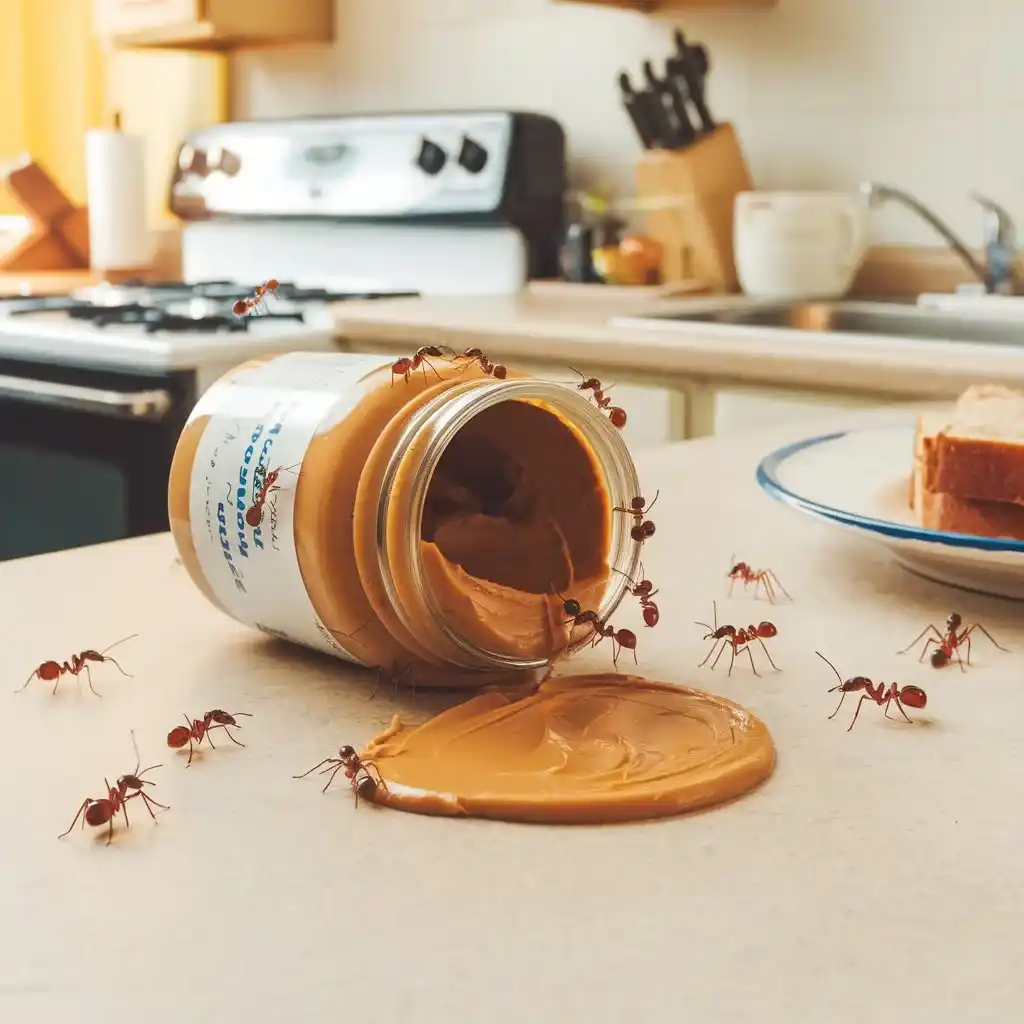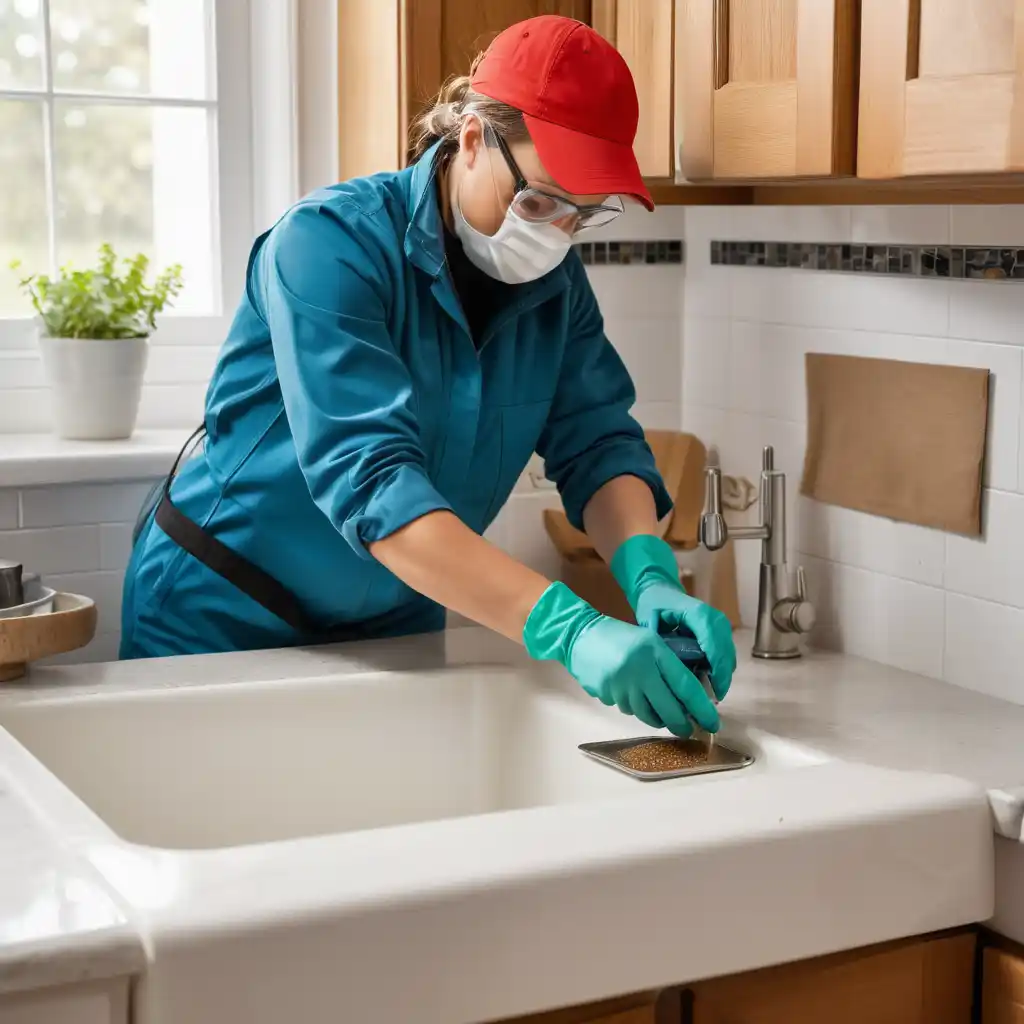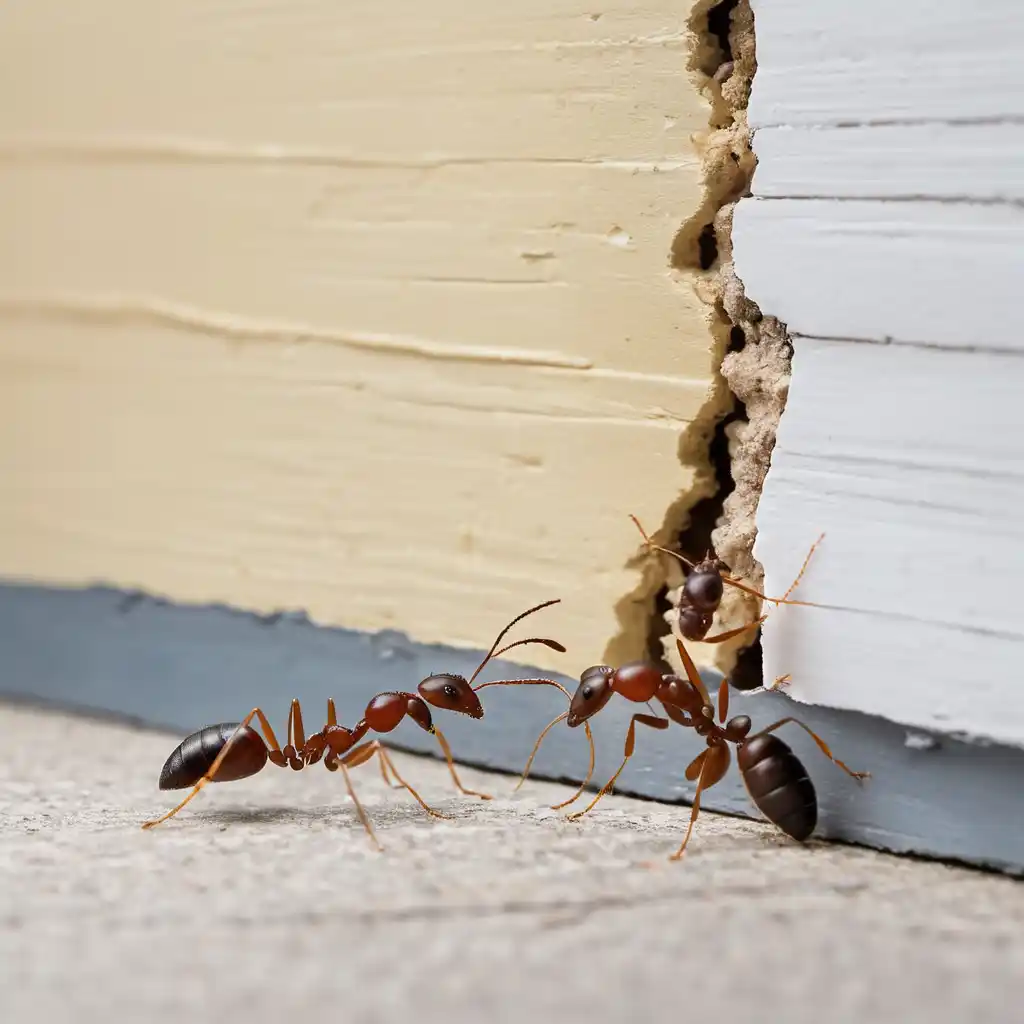Ant control is essential for homeowners who want to maintain a clean and comfortable living environment. When ants invade your home, they can quickly become more than just a nuisance. Not only can they contaminate food, but they can also damage property, creating significant headaches if not addressed promptly. Therefore, in this guide, we’ll explore effective strategies for ant control. By following these tips, you’ll be able to manage infestations both inside and outside your home, ensuring long-term protection and peace of mind.
Ant-Control is Essential for Homeowners

Understanding why ant control is necessary goes beyond simple annoyance. Here are several reasons to take action:
Food Contamination
Ants can easily access your food, spreading bacteria and making it unsafe to eat.
Property Damage
Certain ant species, like carpenter ants, can damage wooden structures by burrowing into them.
Bigger Pest Problems
An ant infestation can attract other pests, creating a larger problem for your home.
Most ant infestations start with worker ants searching for food and water. These industrious little creatures leave behind a chemical trail known as pheromones, which other ants follow straight into your home. If you’ve ever seen long lines of ants, they’re likely on a mission guided by these pheromones.
Sanitation and Prevention: The First Line of Defense
The first step in effective ant control is making your home less appealing to ants. Here’s how you can do that:
Ant-Control : Clean Kitchen Appliances

Ants often find food crumbs and grease behind kitchen appliances. Regularly clean these areas to eliminate food sources.
Store Food in Sealed Containers
Use tightly closed containers constructed from glass, plastic, or metal materials. This simple practice can drastically reduce the likelihood of attracting ants.
Eliminate Moisture
Moisture is a significant attractant for ants. To combat this, consider these steps:
- Fix leaky pipes.
- Ensure sinks and countertops are dry.
- Dry out dish rags and sponges overnight.
Seal Cracks and Crevices
Use caulk to seal any openings around windows, doors, and baseboards. This prevents ants from entering your home and enhances your ant control efforts.
By focusing on sanitation and prevention, you’ll make your home much less appealing to ants and reduce the chances of an infestation.
Indoor Ant-Control: Steps for Successful Treatment
Once your home is clean and sanitized, it’s time to tackle the problem areas. The most effective method of ant control combines baiting and non-repellent sprays.

Ant-Control ” Baiting”:
Ant baiting is a powerful method for dealing with ant infestations. Here’s how to effectively use bait:
- Granular Bait: Place granular bait in cracks, crevices, and hidden areas where ants travel. This method targets ants before they reach your living space.
- Liquid Bait: Use liquid bait in kitchens and near sinks, as ants are likely to find food and water there.
It’s important to keep the bait fresh and check it weekly to ensure the ants are still feeding on it. For instance, I once dealt with an ant problem in my kitchen, and by regularly replacing the liquid bait, I was able to eliminate the ants within just a few days.
Non-Repellent Sprays
Non-repellent sprays are excellent for ants that may avoid bait. Follow these steps:
- Use the included straw applicator to spray into cracks and crevices where ants commonly travel, such as door frames and window frames. This targeted approach not only helps to reach hidden areas but also effectively eliminates potential entry points for these pests.
- The spray will be carried back to the colony, effectively eliminating ants from the inside out.
In my experience, combining these two methods has worked wonders for ant control. After following these steps, my home stayed ant-free for months! This approach not only eliminated the immediate problem but also helped prevent future infestations.
Outdoor Ant-Control: Stopping Ants Before They Enter
Outdoor ant control is just as crucial as treating indoor infestations. Here are strategies to prevent ants from entering your home:

Trim Foliage
Ants frequently utilize trees and shrubs as pathways to reach your home. To prevent this:
- Ensure that branches do not touch your house.
- Maintain well-trimmed shrubs.
Create a Dry Zone
Ants prefer moist environments, so creating a “dry zone” around your home’s foundation is vital. Here’s how:
- Rake mulch and other bedding materials back at least six inches from the foundation.
- Ensure proper drainage around your home.
Ant-Control “Use Granular Bait and Spray”:
Apply granular ant bait around your yard, particularly near ant trails or nests. Additionally, combine this with a non-repellent spray to create an effective outdoor barrier. This two-pronged approach not only targets the ants directly but also helps prevent new ones from entering your space.
By addressing outdoor ant control early, you’ll minimize the risk of ants getting inside your home.
Understanding Ant Behavior and Colony Structure
To achieve long-term ant control, it’s essential to understand ant behavior. Ants operate in colonies, with worker ants collecting food for the queen and the rest of the colony. Using pheromones, they create trails that guide others to food and water sources.
When using non-repellent sprays and ant bait, worker ants unknowingly carry the poison back to the colony, effectively targeting the entire group. This means that not only are you eliminating the visible ants, but you’re also addressing the hidden ones within the colony, ensuring a more thorough solution.
Ant-Control “Personal Experience “:
Long-Term Ant Prevention Strategies
Effective ant control goes beyond immediate fixes. Here are some long-term strategies:
Ongoing Maintenance
Regularly check for cracks and crevices around your home. Make it a habit to inspect areas where ants could enter.
Stay Informed
Keep up with pest control best practices and new products that can help in managing ant problems.
Create an Ant-Free Zone
Consider placing ant traps around the perimeter of your home as a preventative measure.
Conclusion
Effective ant control is about more than just spraying chemicals. It requires a combination of sanitation, baiting, and regular outdoor maintenance. By keeping your home clean and eliminating food sources, you reduce the chances of attracting ants. Moreover, using targeted treatment methods, such as baits or sprays, can help tackle existing ant problems. However, it’s important to remember that prevention is just as crucial as treatment, so regular outdoor maintenance can stop ants from entering your home in the first place.
Remember, ongoing maintenance is key to preventing future infestations. Whether you’re dealing with ants inside or outside your home, consistently following these strategies will protect your space and ensure a comfortable living environment. With the right approach to ant control, you can enjoy your home without worrying about unwelcome visitors.
FAQs About Ant Control
1. Why is ant control important for homeowners?
Ant control is important because ants can quickly become more than just a nuisance. Not only can they contaminate food, but they can also damage property, leading to significant problems if not addressed. Consequently, taking action early is crucial to prevent these issues from worsening. Moreover, being proactive in your approach can save you time and resources in the long run.
2. How do ants get into my home?
Most ant infestations start with worker ants searching for food and water. In addition, these ants leave behind a chemical trail called pheromones, which guide other ants right into your home. Therefore, if you see a line of ants, they are likely following this trail. Consequently, it’s essential to address the source of the trail to prevent further infestations.
3. What are the first steps I should take for ant control?
The first step is to make your home less appealing to ants. You can do this by regularly cleaning areas where food crumbs may accumulate, storing food in sealed containers, and eliminating moisture by fixing leaks and drying surfaces.
4. How can I effectively bait ants?
You can use both granular and liquid baits to target ants. Place granular bait in hidden areas, and use liquid bait in kitchens or near sinks, as these are common places for ants to find food. It’s also important to keep the bait fresh and check it weekly to ensure ants are still feeding on it.
5. What role do non-repellent sprays play in ant control?
Non-repellent sprays are useful because ants will walk over them without realizing it. When they return to the colony, they carry the poison back, effectively targeting the entire group. This means you’re addressing both the visible and hidden ants.
6. What outdoor measures can I take to prevent ants from entering my home?
You should trim any branches or shrubs that touch your house, as they can serve as pathways for ants. Additionally, creating a dry zone around your foundation by raking mulch back and ensuring proper drainage can help keep ants away.
7. How often should I check for ant infestations?
It’s important to regularly inspect your home for cracks and crevices where ants could enter. In addition, making this a habit will not only help you catch potential infestations early but also allow you to take action before they escalate into a bigger problem. Furthermore, by staying proactive, you can significantly reduce the chances of ants making their way inside your home.
8. What long-term strategies can I use to prevent ants?
Some long-term strategies include ongoing maintenance, staying informed about pest control practices, and placing ant traps around the perimeter of your home as a preventive measure.
9. Can I manage an ant infestation myself?
Yes, by following the strategies outlined in this guide—such as sanitation, baiting, and regular maintenance—you can effectively manage an ant infestation on your own. However, if the problem persists, you may want to consider consulting a professional for additional assistance. Moreover, seeking expert help can provide you with more tailored solutions and ensure that the infestation is fully addressed.
10. What should I do if I see ants in my home?
If you see ants, start by cleaning up any food sources and applying bait in the areas where you notice them. Additionally, it’s important to use non-repellent sprays to treat cracks and crevices. By taking these steps promptly, you can effectively manage the infestation and prevent it from worsening. Moreover, addressing the issue quickly will help protect your home from further ant problems.
If you're interested in learning more about specific ant species and their differences, check out our article on Carpenter Ants vs. Black Ants.

